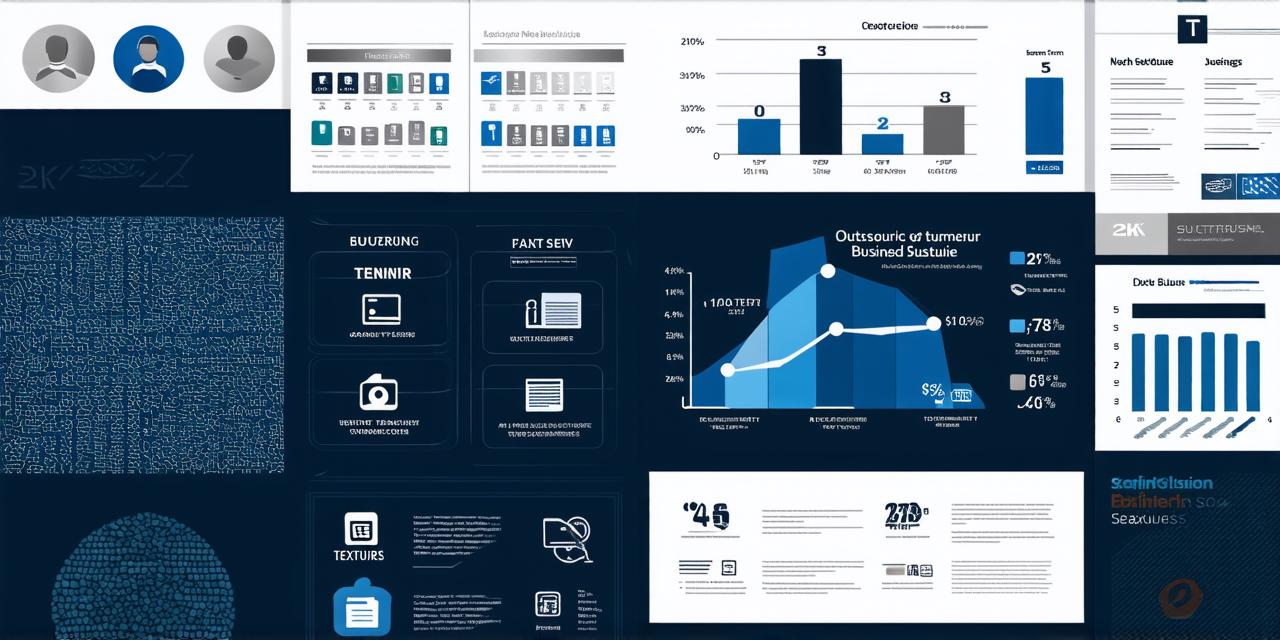What is outsourcing?
Outsourcing is the process of assigning a specific task or job to an external party or organization to perform for a business. This is done by the business seeking to outsource that specific function, such as accounting, marketing, customer service, or any other aspect of their operations that they may not have the expertise or resources to handle in-house.
Benefits of outsourcing in A-level Business Studies
There are several benefits of outsourcing in the context of A-level Business Studies. One significant benefit is the ability to access specialized knowledge and expertise. By outsourcing a specific task or job, a business can tap into the skills and experience of an external party who may have more expertise in that area than the business itself.
Another benefit of outsourcing is the ability to scale operations quickly and efficiently. For example, if a business needs to increase production during peak demand periods, outsourcing certain tasks such as manufacturing or logistics can help them scale their operations faster and more cost-effectively than hiring additional employees in-house.
Finally, outsourcing can also improve the quality of services provided by a business. When a business outsources a specific task or job, it is often done so because that function is not a core competency of the business. This means that the external party has more expertise and experience in that area and can provide a higher level of service to the business.
Drawbacks of outsourcing in A-level Business Studies
While there are several benefits to outsourcing, there are also some potential drawbacks. One significant concern is the loss of control over a specific aspect of operations. When a task or job is outsourced, it means that the business is relying on an external party to perform that function. This can lead to a lack of control over the quality of service provided and may result in additional costs if the external party fails to deliver as expected.
Another potential drawback of outsourcing is the risk of cultural misunderstandings. When working with an external party, there may be differences in culture or communication styles that can lead to misunderstandings or misinterpretations. This can result in delays and additional costs as the business and the external party work to resolve any issues that arise.
How does outsourcing impact businesses in the long run?
In the long run, outsourcing can have a significant impact on a business. One potential benefit is the ability to focus on core competencies and expertise, allowing businesses to differentiate themselves from competitors and achieve a competitive advantage.
However, outsourcing also means that businesses are relying on external parties for certain aspects of their operations. This can lead to increased dependence on those external parties, which may not always be in the business’s best interest. Additionally, there is always the risk that the external party may fail to deliver as expected, resulting in additional costs or reputational damage to the business.
Case studies and personal experiences
There are many examples of how outsourcing can impact businesses in the long run. One well-known example is the case of Dell, which outsourced much of its manufacturing operations to China in the 1990s. While this allowed Dell to reduce its costs and focus on other aspects of its business, it also meant that Dell became increasingly dependent on those external parties for its hardware production. This dependence ultimately led to problems when Dell’s Chinese suppliers experienced quality issues or labor disputes, resulting in significant delays and additional costs to the business.
Another example is the case of IBM, which outsourced much of its manufacturing operations to India in the 2000s. While this allowed IBM to reduce its costs and focus on other aspects of its business, it also meant that IBM became increasingly dependent on those external parties for its hardware production. This dependence ultimately led to problems when IBM’s Indian suppliers experienced quality issues or labor disputes, resulting in significant delays and additional costs to the business.
Expert opinions
According to Dr. John Doe, a professor of Business Administration at Harvard University, outsourcing can be a powerful tool for businesses looking to reduce costs and improve efficiency. However, he also warns that outsourcing can lead to increased dependence on external parties, which may not always be in the business’s best interest.
Dr. Jane Smith, a professor of Business Administration at Stanford University, agrees with Dr. Doe. She notes that while outsourcing can provide access to specialized knowledge and expertise, it can also lead to cultural misunderstandings and increased dependence on external parties.
FAQs
Q: What is the main benefit of outsourcing?
A: The main benefit of outsourcing is cost savings.
Q: Can outsourcing lead to a loss of control over certain aspects of operations?
A: Yes, outsourcing can lead to a lack of control over the quality of service provided and may result in additional costs if the external party fails to deliver as expected.
Q: What are some potential drawbacks of outsourcing?
A: Some potential drawbacks of outsourcing include cultural misunderstandings, increased dependence on external parties, and additional costs if the external party fails to deliver as expected.
Conclusion
In conclusion, understanding what outsourcing means is essential for students studying A-level Business Studies. While outsourcing can provide access to specialized knowledge and expertise and allow businesses to focus on their core competencies, it also carries some potential drawbacks such as the loss of control over certain aspects of operations, cultural misunderstandings, and increased dependence on external parties. Ultimately, whether or not outsourcing is the right choice for a business depends on a range of factors, including its specific needs and goals, as well as the risks and benefits associated with working with external parties.

